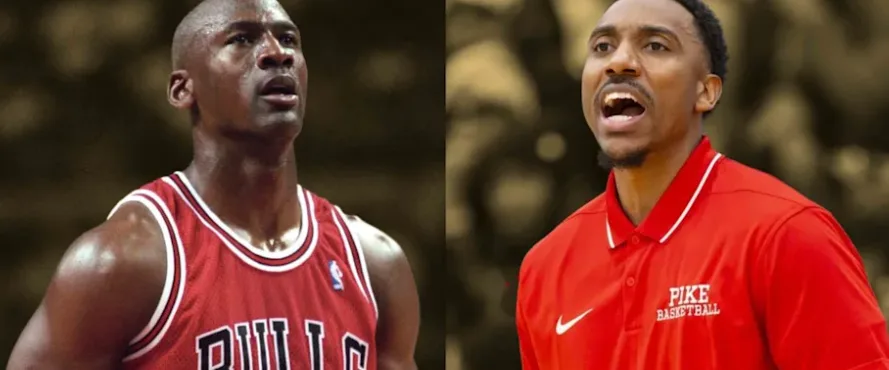- The GOAT (Greatest of All Time) discussion ratcheted up this time courtesy of former NBA player Jeff Teague. In a post to the Club 520 Podcast, Teague provided what amounted to a scorched-earth opinion: Michael Jordan, though transcendent as he was, had one thing that LeBron James did not: an otherworldly ability to raise his teammates to a new level of play. His statement? Mike himself could not do that. The line did not simply fall on the ground: it opened up a discussion that reverberates far beyond locker rooms.
- 1. An Audacious Statement by an Old Veteran Guard
- The point behind the comparison Teague made, then, had nothing to do with rings or scoring, which Jordan and LeBron have in abundance; instead, it was about leadership in basketball, sway, and flexibility. He explained:
- LeBron is a playmaker. Teague said, recollecting his high school days, LeBron preferred throwing fancy passes to scoring. He was emphatic that the power LeBron has in elevating the collective capacity of the other team players was something that only a very few generational players, such as Chris Paul, share.
- In comparison, Teague held that even though Jordan encouraged teammates to do better, he did not make them better as James does.
- That even Mike could not do that, Teague concluded, an assertion exceedingly and completely suggestive.
2. Context: Where This Debate Has Been and Why It Matters
The Jordan vs. LeBron debate spans decades:
- Jordan (’90s dominance) brought six championships and established a legacy of elite scoring, killer instinct, and unmatched will to win.
- LeBron, meanwhile, redefined longevity and versatility—dominating multiple teams across eras and constantly adapting his game to raise those around him.
Teague’s point taps into that narrative: Jordan led by example and ferocity, but LeBron leads by empowering.
3. What Makes Leadership on the Court Unique
Teague anchored his perspective in a few key observations:
- Passing first: Teague recalls LeBron’s joy in making a spectacular assist, suggesting a different mindset from Jordan’s scoring-first identity.
- Raising teams: LeBron has turned up with teams lacking star power and still made them contenders. Jordan played with legends Scottie Pippen, Dennis Rodman, but rarely had to elevate those around him.
- A rare trait: “You’ve gotta be generational,” Teague said. Not just talented, but someone whose command changes how teams operate.
4. Reactions and Ripples in the Basketball World
Teague’s argument isn’t in a vacuum:
- It aligns with a large contingent that sees LeBron’s adaptability—his turn to point guard, power forward, even post scorer as unmatched in modern basketball.
- It also dovetails with comments from Austin Rivers, who labeled Jordan a better scorer but said LeBron’s durability and efficiency are modern marvels. Rivers insisted that basketball in the ‘90s didn’t prioritize shooting percentages as much as moments, another nod to leadership not tied to stats.
Responses across social media and analyst roundtables have been mixed: some praising the insight, others defending MJ’s legacy, while others floated the idea that both defined greatness in equally potent, but different ways.
5. What This Means for the GOAT Debate and Basketball Culture
Teague’s commentary points out that there was a change:
The importance of scoring is spread out today, with value sometimes being placed upon versatility, vision, and emotional leadership.
The Jordan era glorified heroball and dominance; the LeBron era glorifies adjustment, durability, and team flexibility.
The legacies of the NBA on winning and the value of influence over statistics have become debated by families, fans, and media because the future of the league depends not only on nostalgia but also on the ability to respect influence a lot more than statistics.
No matter what side of the MJ perfection or LeBron transformation you buy into, Teague’s analysis leaves a gap where one can indulge in the style and influence other than simply the outcome.





